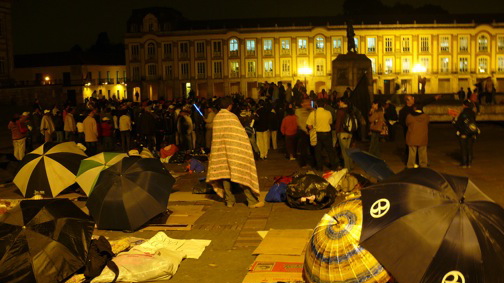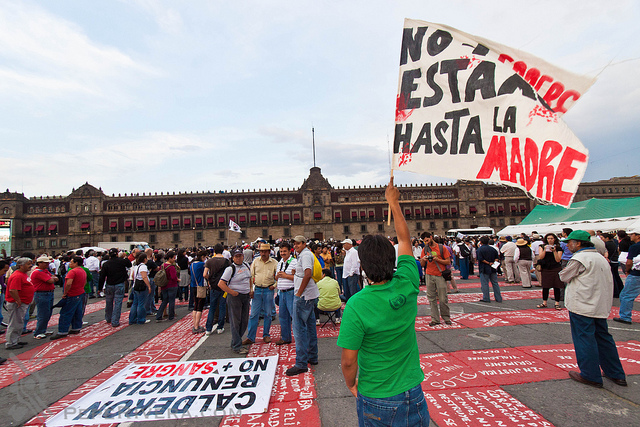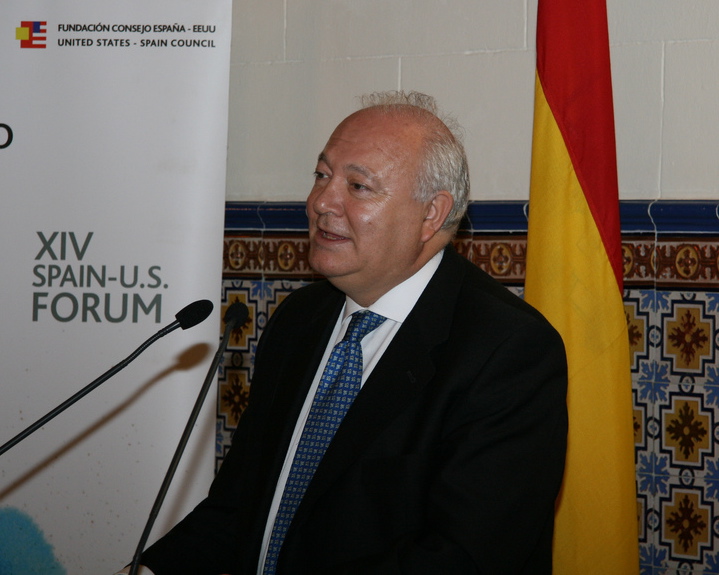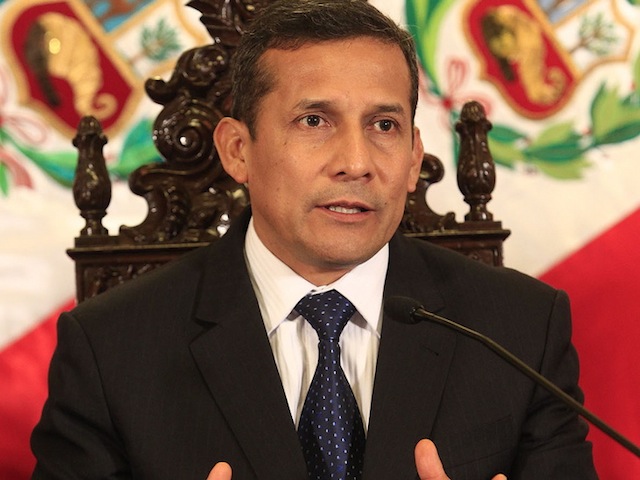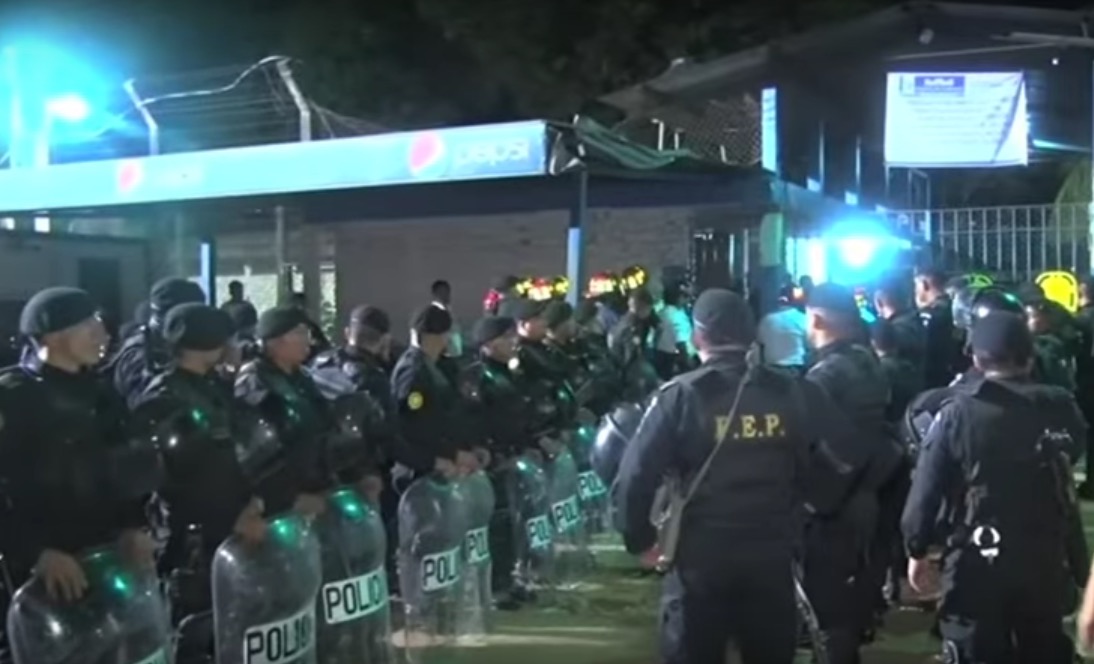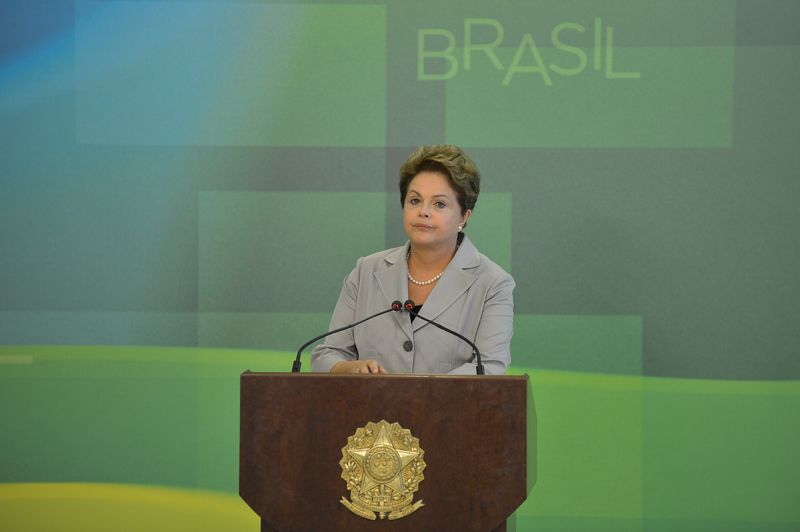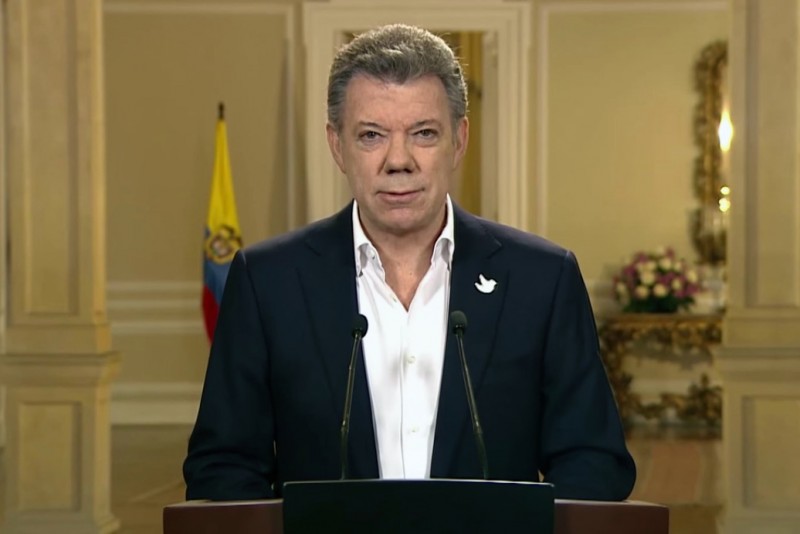
Colombia, Latin America: Week in Review
Colombia Declines to Extradite FARC Guerrilla to US
December 2, 2015 By Staff
Colombia’s President Juan Manuel Santos on Tuesday revealed an executive order rejecting the U.S. extradition request for FARC rebel Juan Vicente Carvajal, wanted in New York on drug trafficking charges, Reuters reported.
The decision, the first time Colombia has declined to extradite a rebel from the Revolutionary Armed Forces of Colombia on drug charges, is linked to the approaching March deadline of ongoing peace talks in Havana, Cuba between Santos’ government and the rebels, who have long demanded extradition be taken off the table.
“I don’t believe that any guerrilla is going to turn in his weapon only to go and die in a U.S. jail,” Santos said in Spain during a visit in March. As Reuters notes, FARC leaders say rebel demobilization, one of the few points still up for debate in the peace negotiations, can’t continue without protection from extradition to the United States for past crimes.
Colombia has extradited a number of FARC members in the past, including high-profile leader Símon Trinidad, whose release is demanded by guerrilla negotiators.
In October, Kevin Whitaker, the U.S. Ambassador to Colombia, said that although the United States would always seek out those accused of crimes, Washington would leave the decision of whether to extradite or not to the Colombian government. In an interview with Colombia’s Caracol Radio, he noted that “if the [Colombian] government decides it is not convenient to extradite them [to the US], we’ll respect that.”
Extradition to the U.S. has long stirred controversy in Colombia; since the extradition treaty went into effect in 1982, various groups, including the Medellín Cartel of Pablo Escobar, have pushed for it to be outlawed. A new constitution in 1991 protected Colombian nationals from the practice, a measure reversed by a 1997 constitutional amendment. Extradition was also a key issue during the peace process negotiated between former President Álvaro Uribe (2002-2010) and paramilitary fighters.
Headlines from the Western Hemisphere
North America
- An archaeological dig beneath Mexico City may have unearthed the tomb of Aztec ruler Moctezuma, although researchers will not be certain until the next phase of excavation next year.
- Coca-Cola is under fire in Mexico for a Christmas ad that shows light-skinned actors distributing the soft drink to members of an indigenous group as a charitable gesture, an ad critics say should be banned.
- Parents of the 43 teacher-trainee students missing since 2014 from the Mexican state of Guerrero have discontinued a protest camp in Mexico City, calling the move a demonstration of good faith for a new investigation announced Monday.
Caribbean
- Puerto Rico averted default Tuesday with a last-minute $355 million bond payment, but officials caution the territory’s fiscal situation is still dire.
- Texas Governor Greg Abbott, on a visit to Cuba aimed to building business ties, reportedly enjoyed a concert and a show, but was told by officials that for the time being, there are few economic opportunities for Texas businesses on the island.
Central America
- Five Syrian men arrested in Honduras on their way to the United States with fake Greek passports were released on Tuesday and are expected to gain permanent refugee status in early 2016 in the Central American country, where an Arab population has already “welcomed” the refugees, an official said.
- Costa Rica celebrated the 67th anniversary of the abolition of the army on Tuesday with a ceremony during which President Luis Guillermo Solís heralded the country’s “culture of peace.”
Andes
- Venezuelan professional soccer player Salomon Rondon and 15 other members of the national team have threatened to quit if their federation’s director, whom they blame for mismanaging the federation and poor treatment, doesn’t resign.
- Venezuelans are turning to Facebook to barter what goods they can get their hands on amid a major economic crisis and shortages, which the Miami Herald notes ironically recalls President Hugo Chávez’s call for “socialist swap markets.”
- Venezuela’s current President Nicolás Maduro threatened late on Tuesday to arrest local managers of the Heinz food company, accusing them of sabotaging the economy.
Southern Cone
- Former Argentine President Carlos Saúl Menem was sentenced Tuesday to four and a half years in prison for his role in embezzling some $466 million during his presidency in the 1990s, although his lawyer said he will appeal the ruling and he enjoys immunity until 2017.
- Four military police officers were taken into custody in Rio de Janeiro over allegations that they killed five black and mixed-race youths in a Sunday shooting and then tampered with the crime scene to make it look like self-defence, the latest of many Rio police shootings to spark outrage.
- Brazil’s economy contracted 4.5 percent in the third quarter of 2015 compared to the same time last year, the worst showing since at least 1996, and analysts say growth is unlikely to resume anytime soon.
- A former political prisoner in Argentina has met her son for the first time after the two were separated by the military dictatorship upon his birth, a reunion made possible by a DNA test organized by the activist group Mothers of the Plaza de Mayo.
Subscribe to Today in Latin America by Email
